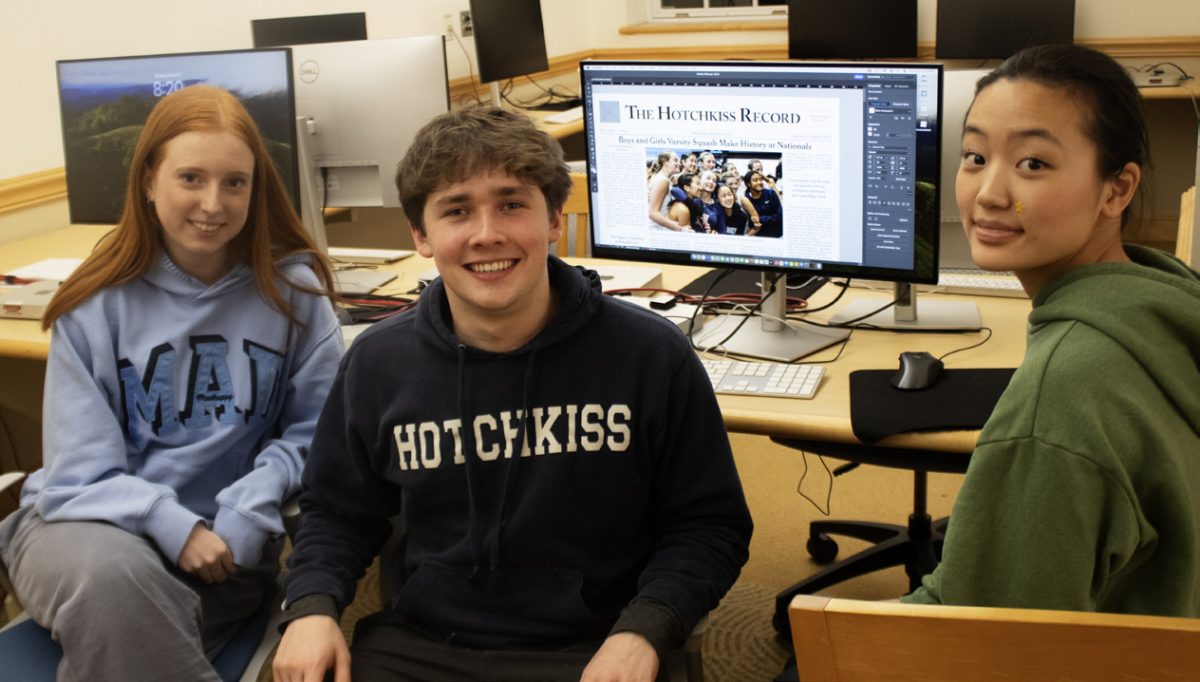Throughout more than a century of our school’s existence, we’ve developed our own culture as a community. Hotchkiss students are devoted, kind, and create an environment conducive to academic success and personal growth. Yet since Covid, our culture has become fragmented. Our club events, school spirit, and the general environment of our community have all become a fraction of what they were before the pandemic. As the Class of 2023, the last class to experience pre-Covid Hotchkiss, graduates, we, the editors, want to discuss the lasting impact of Covid and reflect on how we can rebuild community life.
We are aware of the fact that the community has grown to dislike Covid-related conversations, and for good reason. No one wants to relive the pain of virtual classes, isolation, and lost time with friends and family. However, it’s important to understand the gravity of the loss experienced by the school community as a whole over that time period.
Before the pandemic, the Hotchkiss Political Union, the Democrats, the Republicans, and school spirit clubs like Blue & White attracted many more members to meetings, and were far more active. Now, they struggle to attract more than a few people to meetings.
The clubs’ program of the past was more consolidated than it is now. It focused more on quality than quantity, on drawing large groups of students together, rather than having what seems like a club for every few students. (For a student body of just over 600, we currently have 115 clubs).
This situation leads to choice paralysis – when an overabundance of similar options leads to people feeling dissatisfied with the selection they eventually make. Instead of focusing on building up and improving existing organizations, the school has allowed students to create clubs to fit every conceivable niche for no good reason.
During Covid, as our community lost access to most of the opportunities to connect with the campus environment, students also learned not to take certain kinds of clubs seriously. The Record, sure, was publishing. St. Luke’s is irreplaceable. Debate is impossible to arrange without the school’s leadership and financial backing. However, other essential clubs and especially those focused on community engagement have been steadily losing their substance. Many of our clubs meet little more than twice a year – once to renew their club application and once to select a new board.
One may argue that these clubs offer a place to relax and have fun, so what is the harm in having so many? But our Clubs Committee needs to step up to stop the process from becoming a way for students to simply pad their college applications.
Tougher standards need to be implemented at every level of the clubs approval process. The Clubs Committee must be more thorough and demanding when evaluating club registration and renewal applications. The number of signatures to register a new club, for instance, must be raised. Clubs cannot be allowed to operate unless they have consistent, substantive meetings, and better procedures must be in place to ensure that, for instance, club heads cannot simply write a list of their friends to submit as proof of attendence at meetings.
Stricter oversight, of course, is a nuisance, but at the end of the day, oversight that places all of its emphasis on self-reported data is destined to run into fraud. Limits also need to be imposed on the number of board members per club and the number of clubs per board member. This is merely a measure of commitment – no one is capable of running eight different clubs if the clubs have any degree of work behind them.
This game of one-upmanship is forcing everyone to play. In order to match those members of the community who create and occupy positions in what seems like a dozen clubs, logically, everyone else in the community must also create a dozen clubs.
Unless the school stops this now, our culture will continue to erode, and we will continue seeing a disengaged and fragmented student community.



